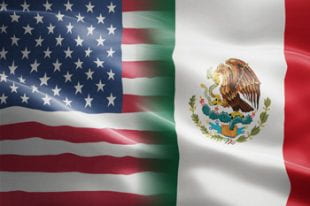EXPERT ALERT
Jeff Falk
713-348-6775
jfalk@rice.edu
Trump shouldn’t designate Mexican drug cartels as terrorist groups, says Baker Institute expert
HOUSTON — (Dec. 6, 2019) – President Donald Trump’s proposed designation of Mexico’s drug cartels as foreign terrorist organizations is a double-edged sword that will not only have limited impact on the mayhem caused by those groups, but also will probably have negative effects on trade, commerce and other crucial aspects of U.S.-Mexico relations, according to a former Drug Enforcement Agency official and drug policy expert at Rice University’s Baker Institute for Public Policy.
“The foreign terrorist organization designation should not be taken lightly,” Gary Hale, a nonresident fellow in drug policy and Mexico studies at the Baker Institute, writes in a new post for the institute’s blog.
Hale is available to discuss the issue with the news media.
“The gains that Trump has made through Mexico’s cooperation toward reducing the number of migrants reaching the U.S. southern border could also suffer significantly should U.S. forces intervene in any manner in Mexico, including a surgical attack against any one member of a cartel or any one of the several cartels that are operating throughout Mexican territory,” writes Hale, who from 2000 to 2010 was chief of intelligence in the Houston division of the DEA, from which he retired in July 2010.
“Many reports have confused the … designation as being the same as the Foreign Narcotics Kingpin Designation Act, which is designed to deny foreign drug cartel kingpins and their support system access to the U.S. banking or financial system,” Hale writes. “The targets of the act are managed by the Treasury Department’s Office of Foreign Assets Control; criminal acts lead to administrative sanctions and do not involve overt military action. In contrast, the foreign terrorist organization designation is a decidedly more lethal weapon because designees are considered enemy combatants who can legally be killed — the same as if the foreign terrorist organization nominee were wearing a uniform of an enemy military force and attacking U.S. forces on the battlefield.”
Osama bin Laden and al-Qaida were designated as foreign terrorist organizations, Hale said.
“Unlike bin Laden and al-Qaida, many more individuals in Mexico could end up listed as foreign terrorist organizations and could be killed by the U.S. for the terroristic actions they commit in Mexico, albeit mostly against Mexicans,” Hale wrote. “Thus, if a Mexican criminal is designated as an enemy combatant as a result of a foreign terrorist organization designation, that civilian could be subject to execution through U.S. military action, an act of war in which a person is summarily killed without benefit of a full and fair trial. That is hardly the ‘American Way.'”
Hale concluded, “This cabal of criminal thugs should instead continue to be prosecuted by the Mexico and U.S. judicial systems and not mislabeled as military combatants for political purposes.”
-30-
The Baker Institute has a radio and television studio available for media who want to schedule an interview with Hale. For more information, contact Jeff Falk, director of national media relations at Rice, at jfalk@rice.edu or 713-348-6775.
Related materials:
Hale bio: https://www.bakerinstitute.org/experts/gary-j-hale/
Follow the Baker Institute via Twitter @BakerInstitute.
Follow the Baker Institute’s Center for the United States and Mexico @BakerCtrUSMEX.
Follow the Baker Institute’s Drug Policy Program via Twitter @BakerDrugPolicy.
Follow Rice News and Media Relations via Twitter @RiceUNews.
Founded in 1993, Rice University’s Baker Institute ranks among the top three university-affiliated think tanks in the world. As a premier nonpartisan think tank, the institute conducts research on domestic and foreign policy issues with the goal of bridging the gap between the theory and practice of public policy. The institute’s strong track record of achievement reflects the work of its endowed fellows, Rice University faculty scholars and staff, coupled with its outreach to the Rice student body through fellow-taught classes — including a public policy course — and student leadership and internship programs. Learn more about the institute at www.bakerinstitute.org or on the institute’s blog, http://blog.bakerinstitute.org.


